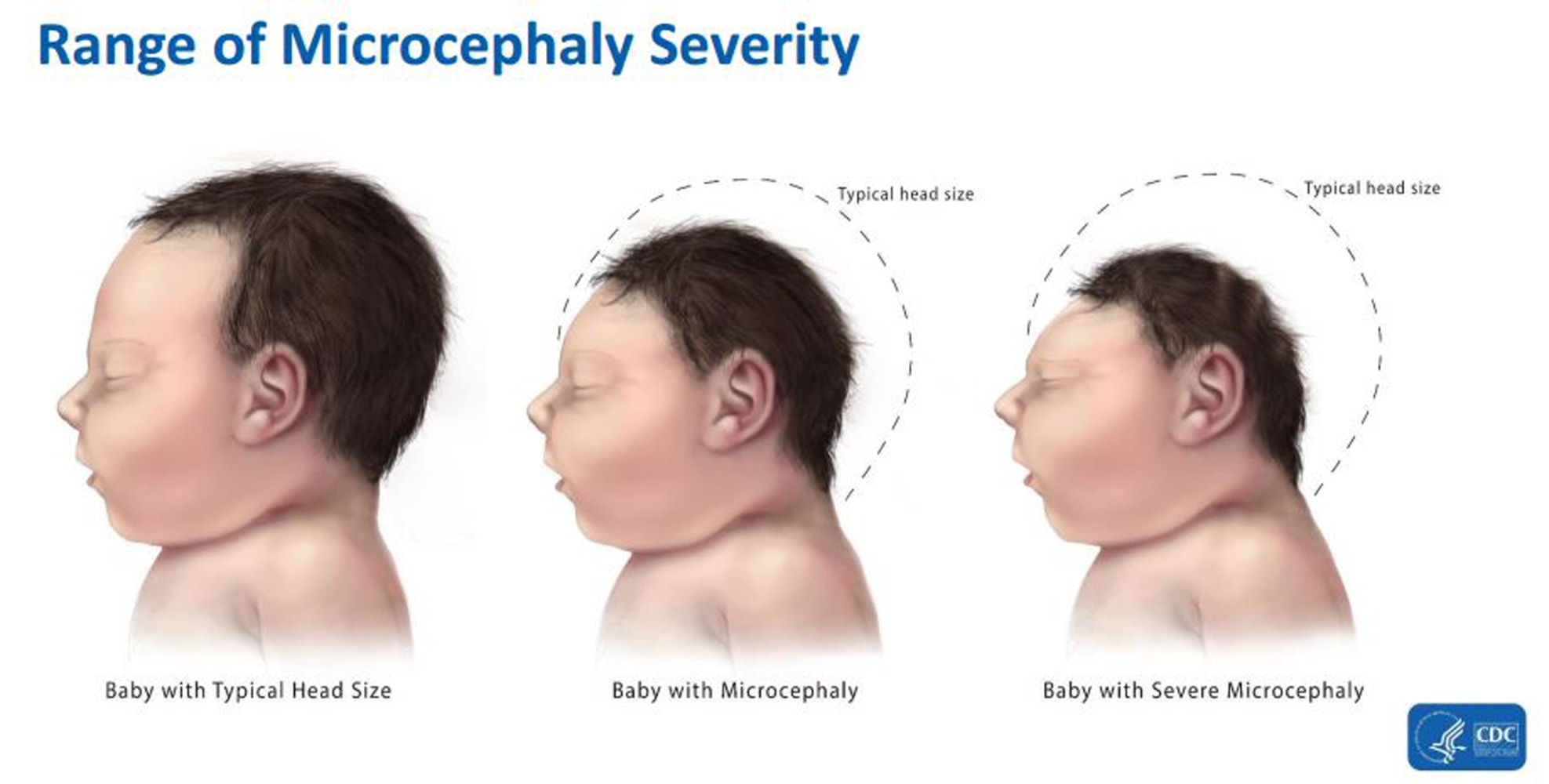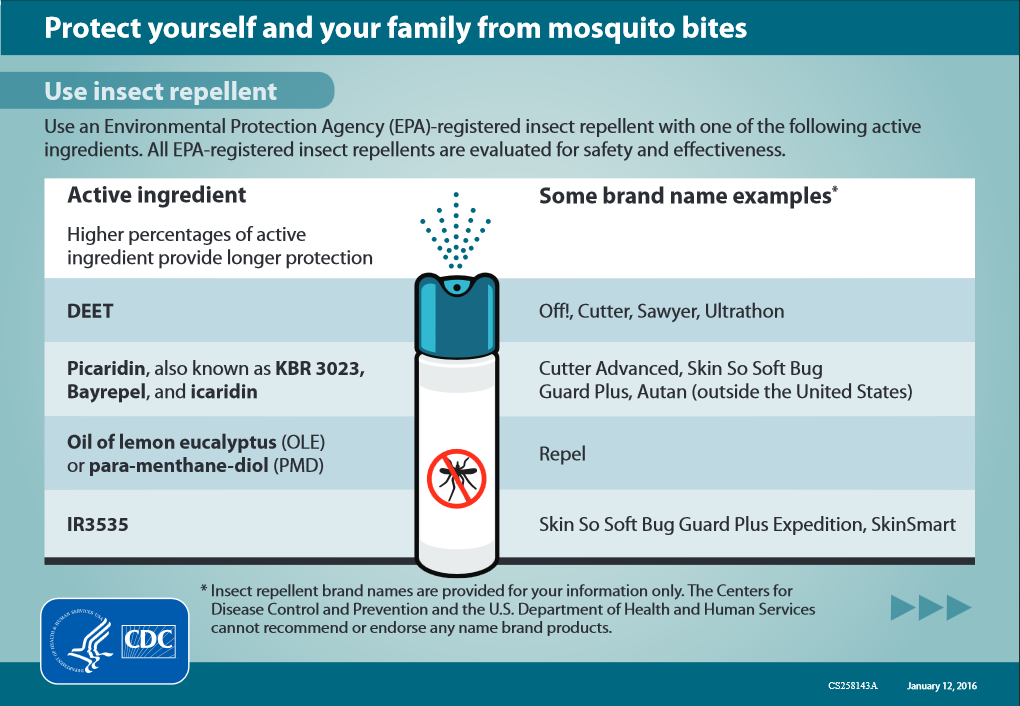The Zika virus is a serious concern for women who are pregnant or thinking about becoming pregnant. Worried about the devastating effects the virus could have, women are looking for the best prevention methods to protect their unborn babies, and wondering if it’s truly safe to use insect repellants while pregnant. The thought of using bug sprays laden with numerous unknown chemicals is unnerving to many pregnant women who are looking for more natural products to use while pregnant, for the health and well-being of themselves, and their babies. However, most natural insect repellants on the market, despite their advertising claims, do little to protect individuals from mosquito bites, and the potential Zika virus.
According to the Centers for Disease Control (CDC), infection with the Zika virus during pregnancy can cause severe fetal brain birth defects, most notably, microcephaly (CDC, 2016). Microcephaly is a condition in which the baby’s head size is much smaller than it should be, meaning then, that the brain has not developed properly (CDC, 2016).
The Zika virus is spread by the bite of an infected mosquito, and in some cases, can be sexually transmitted between an individual infected with the virus and his/her partner. The Zika virus is transmitted to humans via the Aedes species of mosquitoes, the same mosquitoes responsible for the transmission of dengue fever and chikungunya viruses. The Aedes mosquitoes are very unique; unlike other species of mosquitoes, they are aggressive daytime bitters (Hamel & Hughes, 2016). At this time the only area in the United States with mosquitos confirmed to carry the Zika virus is the southern tip of Florida, in and around Miami.
The CDC recommends that individuals who live in, or are traveling to areas with confirmed outbreaks take the proper precautions to prevent being bitten by an infected mosquito. This includes wearing long-sleeved shirts and long pants when outdoors, removing standing water from areas outside the home where mosquitos can lay eggs, and most importantly, using an insect repellant. The CDC recommends the use of Environmental Protection Agency (EPA) registered insect repellants, the only insect repellants with active ingredients proven to be effective in preventing mosquito bites (CDC,2016). The CDC website states, “When used as directed, EPA-registered insect repellants are proven safe and effective, even for pregnant and breastfeeding women” (CDC,2016).
DEET, according to the Harvard Medical School, is the most effective insect repellant, stating that DEET “the chemical discovered over a half-century ago, is still the best mosquito repellent—and safer than you might think, natural repellents may give some people peace of mind, but they may also give mosquitoes an extra meal because they wear off much quicker than DEET-based repellents (Harvard Health Publications, 2003). But are insect repellants containing DEET truly safe for pregnant women to use? The answer is… Yes! The following video clips from CBS News offers some great information about insect repellants containing DEET, and report on the question of DEET being safe for women to use during pregnancy.
Consumer Reports: Natural Bug Spray Less Effective Than Synthetic
References
http://www.cdc.gov/zika/prevention/prevent-mosquito-bites.html
Harvard Health Letter. (2003). DEET is hard to beat: the chemical discovered over a half-century ago is still the best mosquito repellent — and safer than you might think. Harvard Health Publications. 28(9),1-3.
HAMEL, M. S., & HUGHES, B. L. (2016). Zika infection in pregnancy. Contemporary OB/GYN, 61(8), 16-42.

/about/midsection-of-pregnant-woman-standing-at-forest-601250315-57704aee5f9b585875c1d15a.jpg)



Kerry,
Your Blog on Zika Virus was really enlightening. The zika virus is such a relevant issue in today’s society. I like the information you provided by the CDC and the issues that can occur to a pregnant woman and her unborn child from the zika virus. I didn’t realize that there was a specific mosquito that carried the virus I was actually unaware that there were different types of mosquitoes that carried different types of viruses. I really learned a lot from your blog about the types of bug repellents that are safe for pregnant woman. My sister in law is currently pregnant and I know all summer she was nervous about what bug repellants were safe for her to use. I have no sent her the video link you provided to ensure her that DEET is safe for her to use. Great blog post and awesome information that was easy to read and comprehend!
Jackie
Kerry,
It is important that you added Zika virus is not only contracted through mosquito bites, but can be transmitted through sexual intercourse. I like how your blog highlights that insect repellent is safe for pregnant women to use, especially since so many pregnant women are weary on using anything that may be unsafe for the baby while pregnant. The risks of the Zika virus on babies is very alarming, it is important for everyone, especially pregnant women, to be cautious and protect themselves and their children.
Hi Kerry,
From your blog I was able to learn that Zika virus protection is safe for pregnant woman and also I was surprised that protection is simply an insect repellant. As you said, I would be a little unnerved by using insect repellant if pregnant but when you weigh out the option of your child getting microencephaly, I feel like the risks worth it!
Holly
Hi Kerry,
As a mother, I certainly understand the concern of using harsh chemicals during pregnancy and on young children. This blog was informative and would help alleviate concerns about using Deet to repel mosquitos during pregnancy
Such an interesting read, Especially with all the media attention over the summer due to the Olympic games, but it has fizzled out. Out of sight out of mind. However, as the southern hemisphere enters its summer season, perhaps we are about to see more of an outburst. Maybe I missed it but how long after the bite do the effect take place? It is also unfortunate that the “safety” measures for pregnant women might be dangerous as well.